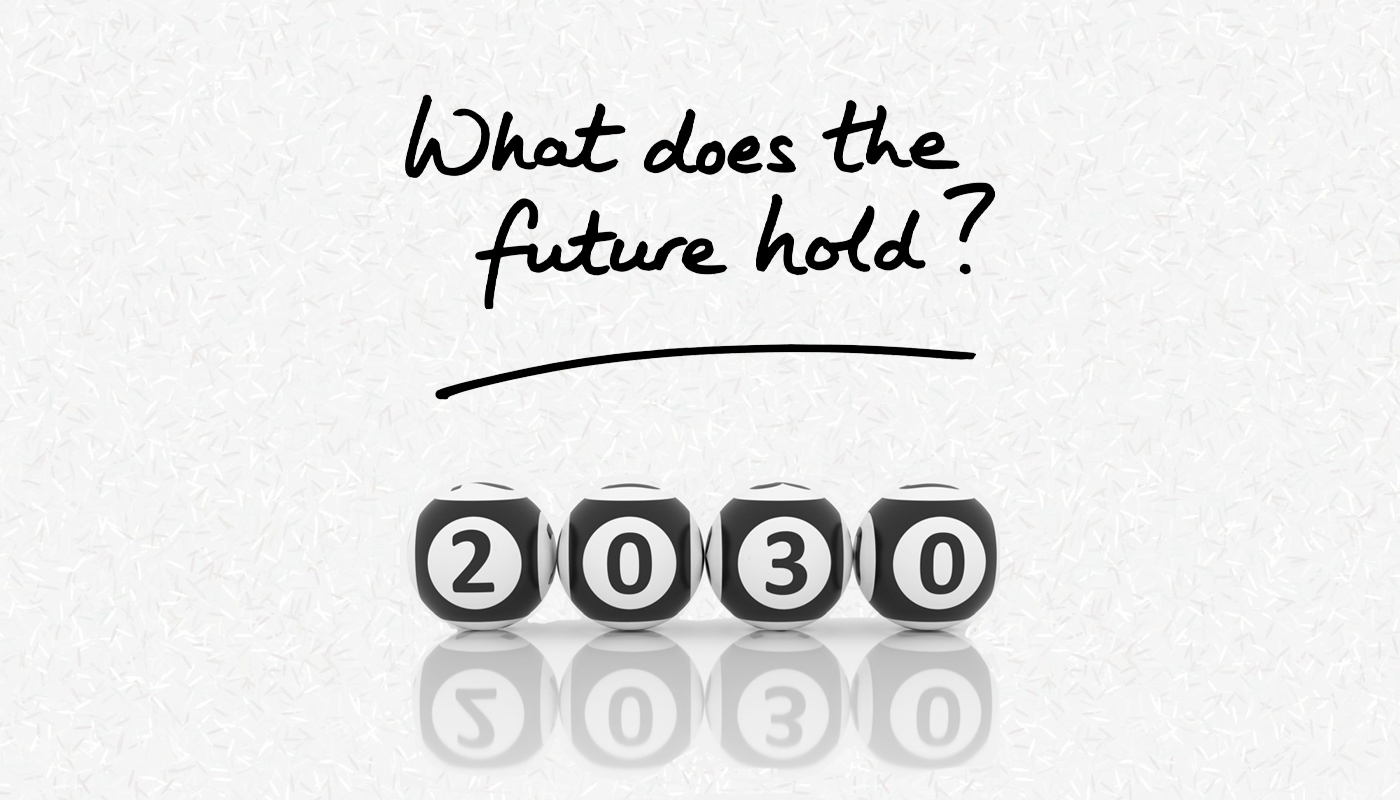
News writer
As the year 2030 approaches, we seem to be at a crucial moment for the iLottery industry in the United States.
Once considered a niche market, U.S. iLottery has experienced substantial growth, achieving a turnover of $8 billion in 2023 and projected to reach $10.8 billion in 2024 (US State Lotteries & Eilers and Krejcik Gaming LLC). For stakeholders within the industry, this rapid expansion gives them both promising opportunities and some tough challenges.
The current landscape
As of 2024, the American iLottery market is a thriving business that is expected to continue to expand and change. iLottery operations, which are legal in 14 states and the District of Columbia, have grown significantly. This growth is mostly thanks to eInstants and draw-based games.
The industry's revenue is driven by these two categories, with eInstants accounting for a massive 85% of the total. This shows you how popular instant-win games are with gamers who are looking for quick satisfaction. Even though it is a smaller share (15% of the market), draw-based games continue to attract a devoted audience. This audience is definitely drawn to the conventional lottery format.
The leading states in per capita sales are Virginia, New Hampshire, and Michigan. The Virginia Lottery is very much forward-looking with its approach to online sales, and it shows. Online sales are projected to account for over 55% of total lottery revenue by 2024.
Competitive pressures
While the iLottery continues to grow, it faces a ton of competition, including sports betting, retail, and iGaming. These competitors have large marketing budgets and clever ways of acquiring clients, which can be a huge threat to iLottery trying to dominate the market. The CEO of NeoGames, Moti Malul, is an expert in sports betting, iLottery, and iGaming. He is warning iLottery executives to address these competitive dynamics decisively, or they may see a loss of up to $30 billion in market share over the next 10 years.
The focus for these iLottery operators is clear: maintain their position against the competition while also being aggressive in innovation. To do this, operators need to embrace a comprehensive strategy that not only maintains their existing market share but also has them looking into new opportunities for growth and distinction.
A perfect example of this is how DraftKings' recently acquired Jackpocket, which shows these competitors are trying to find new ways to capture the market share which is traditionally held by state lotteries. This is showsing iLottery operators that they need to innovate and stamp their digital presence in order to not only retail, but attract new players.
Strategic imperatives
To successfully work their way through the evolving landscape of the iLottery industry, operators must enhance the end-to-end player journey across retail and online channels. These operators not only have to meet the player expectations for online lottery experiences, but they need to exceed them. This includes making sure the games are enjoyable and engaging, the platform is user-friendly, and it is tailored for an individual player's demographics.
The need for proactive innovation can be seen in the competitive dynamics and changing consumer preferences. The acquisition strategy used by DraftKings is an excellent example of how iLottery companies must constantly develop and strengthen their online presence. BY having complete control over the player experience, from that initial engagement to the ongoing retention, operators can show their loyalty and grab onto those extra revenue opportunities by cross-selling with complementary iGaming and sports betting offers.
The attention economy and player engagement
One of the major issues facing U.S. lotteries is keeping players engaged in Les Brown's “attention economy.” A player's attention is a valuable resource, and U.S. lotteries need to capture it and sustain it with compelling online experiences. Not only do they have to offer easy access to iLottery products, but they also have to incorporate creative marketing and sales techniques to improve player retention and cross-selling opportunities.
Moti emphasizes that the industry cannot afford to be complacent. These operators can't just set up an online platform and be done with it. They have to work hard to win back players who may have switched to a competing service. This will become more challenging and costly over time, so the focus now should be to keep that player's loyalty high.
Collaborative innovation
As we continue to look ahead to 2023, collaborative innovation and collective action are going to play pivotal roles in shaping that growth potential for iLottery operators. The landscape is evolving and operators need to embrace a unified approach to not only meet regulatory requirements, but also take advantage of improvements in technology and maintain their relevance in the market.
It is very important that iLottery operators, industry associations, and regulatory bodies work together and share their best practices. This collaborative effort will not only improve operational efficiency, it will also cultivate a continuous improvement culture. By pooling their expertise, operators can effectively advocate for legislative frameworks that encourage digital integration and responsible gaming practices. These operators are going to face legislative obstacles from the different states, so a united front is essential.
By showing the iLottery's contributions to community causes, it will strengthen the industry's standing as a responsible corporate citizen. By investing in education, infrastructure, and social programs, it will show the iLottery's commitment to fostering sustainable development and enhancing the well-being of society.
Legislative and regulatory challenges
A big obstacle for the iLottery industry is navigating the various legal and regulatory landscapes that exist in all the different states. These frameworks may fall a little behind the times, which then makes it difficult for some people to integrate and access the internet more freely. A disjointed regulatory framework may make it harder for the industry to innovate and successfully take on well-funded competitors in iGaming and sports betting.
Streamlining laws and establishing uniform policies across the country is important when creating an environment that supports the expansion of iLotteries. Proactive interaction with stakeholders and legislators can also lower the risks brought on by these regulations, guaranteeing long-term growth and stable operations.
Technological advancements and digital transformation
In this digital age, it is very important for iLottery operators to not only meet their consumer expectations for online engagement but also to exceed those expectations. These rapid technological advancements are serving as catalysts for changing the landscape of lottery operations. They are offering unheard-of chances to enhance user experience, operational effectiveness, and regulatory compliance.
At the forefront of this is mobile app development, which gives users seamless access to iLottery games anytime, anywhere. People are becoming more and more dependent on their phones, so these mobile platforms are serving the needs of this population. They are also providing real-time engagement and personalized interactions that help to drive player loyalty.
Blockchain technology is another innovation that is ready to revolutionize the iLottery industry. By incorporating the transparency, security, and immutability of this blockchain technology, operators can instill a greater trust and confidence among their players.
And, of course, artificial intelligence (AI) will play a pivotal role in shaping the future operations of iLottery platforms. AI-driven algorithms can help analyze player data and trends to craft precise marketing campaigns, game recommendations, and promotional offers. This will help increase player engagement and revenue production.
Even more AI love, but AI-powered chatbots and customer service interfaces can help enhance the overall user experience. How so? By providing instant responses to questions, providing troubleshooting assistance, and personalized recommendations. This will help free up human resources, which can then be used to focus on strategic initiatives and innovation.
Consumer insights and behavioral trends
A deep understanding of customer behavior is crucial in order to adjust iLottery services to changing tastes. By using data analytics and market research, operators can identify trends, demand patterns, and audience segmentation to help create more focused marketing initiatives. iLottery operators may enhance income production, customize player experiences, and optimize promotional campaigns by utilizing big data and predictive analytics.
Operators may quickly adjust their marketing strategies in reaction to changing customer preferences and market dynamics thanks to real-time analytics capabilities. iLottery companies can stand out in a crowded market, improve customer engagement, and cultivate loyalty by utilizing actionable analytics.
Economic impact and social responsibility
The iLottery industry plays a crucial role in boosting state economies by providing money for social services, infrastructure, and education. This industry's wider importance in advancing economic growth and public welfare throughout the U.S. is highlighted by its social impact. Operators are showing their dedication to improving community well-being by allocating a larger amount of their proceeds to these important causes.
Being transparent and accountable about these allocations will help strengthen the public trust in iLottery operations. Clearly communicating how the lottery proceeds are being used helps reinforce the industry's reputation as a responsible corporate entity that happens to be dedicated to supporting essential public services.
Global perspectives and best practices
Understanding international iLottery markets can give operators valuable lessons and best practices that can help improve U.S. approaches to long-term expansion and regulatory compliance. These online lotteries have flourished in the United Kingdom, despite the strict regulations that are designed to balance innovation with consumer protection. By adopting and adapting these tried-and-true approaches to regional settings, it will help U.S. iLottery operators better manage the regulatory maze.
By working with international regulators and industry associations, it will make it easier to benchmark against global standards. This collaborative approach allows U.S. stakeholders to stay on top of emerging trends, regulatory developments, and technological innovations shaping the global iLottery landscape. By using these shared insights and experiences, iLottery operators can proactively anticipate challenges and opportunities, ensuring adaptive strategies that promote sustainable growth in diverse markets.
Conclusion
In conclusion, as the U.S. iLottery market gets closer to the projected $10.8 billion turnover in 2024, it offers a landscape of both promise and challenge. In order to effectively manage the conflicting demands of changing customer tastes and competitive dynamics, the sector needs to prioritize digital transformation, improve player engagement tactics, and encourage cooperation among all parties involved.
It is essential that we take advantage of this current opportunity to safeguard iLottery's future and make sure it continues to be relevant in the American gaming market. Failing to act runs the risk of pushing the industry to the sidelines while more nimble rivals take advantage of new market opportunities. Consequently, the success of the iLottery sector in the upcoming ten years will be built on the foundations of proactive creativity, strategic foresight, and collaborative spirit.
Enjoy playing the lottery, regardless of how you play it, and please remember to play responsibly.

















Comments